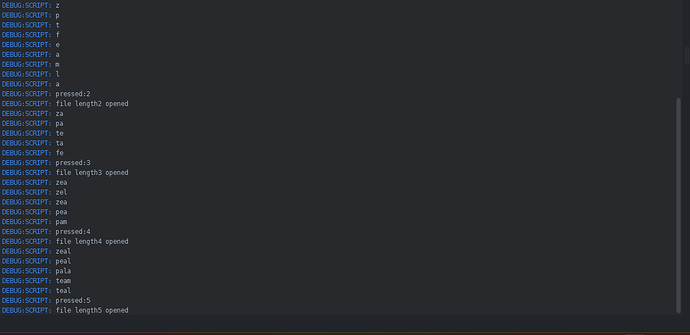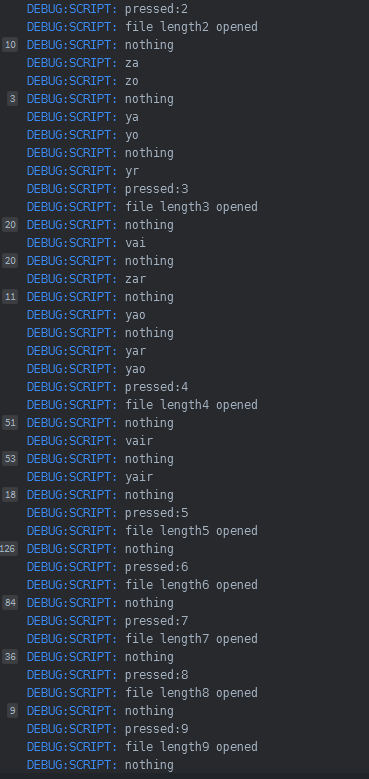I’m having trouble trying to go about generating something
essentially im trying to replicate the countdown letters game and the part i am stuck on is generating all possible combinations of a list of 9 letters which it takes as a parameter, each letter only being used once. another parameter it should take is a number that defines how long the combinations should be. for example, if the list is [“a”,“s”,“d”,“e”,“t”,“u”,“b”,“x”,“a”], and the length number is 5, it should generate all possible ways those 9 letters could be combined to produce combinations of length 5. i also have a binary search function that should check each combination against a word list and if it is valid, adds it to a list
any help with the logic of how to go about this would be much appreciated as im stuck at the minute





